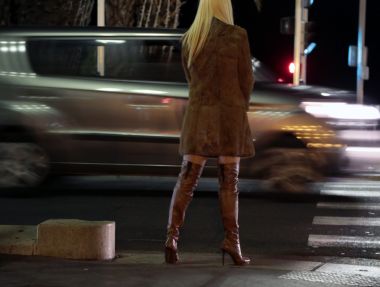UK's strongest anti-slavery legislation passed in Northern Ireland

The UK's strongest anti-slavery legislation was enacted in Northern Ireland this evening, bringing in greater protection for children and tougher punishments for those found guilty of trafficking.
Once it received Royal Assent, the Human Trafficking and Exploitation Bill will be the first dedicated anti-slavery legislation to be passed into law by any UK parliament or assembly in more than 200 years.
The anti-trafficking charity CARE, a principal advisor throughout the legislative process, described the new law as a "landmark" moment in the fight against modern slavery.
The law introduces independent guardians for trafficked children, a statutory support service for victims and a stay of prosecution on victims for all but the most serious of crimes committed while they were being exploited.
Clause 15 of the Lord Morrow Bill means Northern Ireland also joins Sweden, Norway, Iceland and Canada in criminalising paying for sex – a move endorsed by the European Parliament and the Council for Europe.
The Bill also creates a new offence of forced marriage and will place a duty on the Department of Health, Social Services and Public Safety to provide support for those wishing to leave prostitution.
CARE Northern Ireland Policy Officer Mark Baillie said: "This is a landmark moment in the fight against modern day slavery. Northern Ireland has just become the first of the home nations to introduce robust legislation that will tackle human trafficking.
"Lord Morrow's Bill goes significantly further than the UK Government's much trumpeted Modern Slavery legislation in Westminster.
"This Bill not only provides support for victims, as evidenced by the creation of independent guardians for trafficked children and the statutory duty it places on the Department of Health to provide much needed assistance to women wishing to leave prostitution, it also tackles one of the root causes of trafficking, namely paying for sex.
"Lord Morrow has worked tirelessly over the last 18 months to steer the legislation through and the level of dedication and determination he has shown is hugely commendable.
"It is clear there is a growing international consensus to tackle the problem of human trafficking through law and Northern Ireland is now an example for other countries to follow.
"The gauntlet has well and truly been thrown down to the other parliaments across the UK in terms of what is done to tackle the evil of trafficking."
In Britain, the Modern Slavery Bill currently going through Parliament consolidates current offences relating to trafficking and slavery, creates two new civil orders to prevent modern slavery and will establish an Anti-Slavery Commissioner. The Scottish Government has also just committed to introducing their own Human Trafficking Bill.
According to recent Government figures, as many as 13,000 people in Britain are victims of slavery, about four times the number previously thought. The figure for 2013 includes women forced into prostitution, domestic staff, and workers in fields, factories and fishing.











